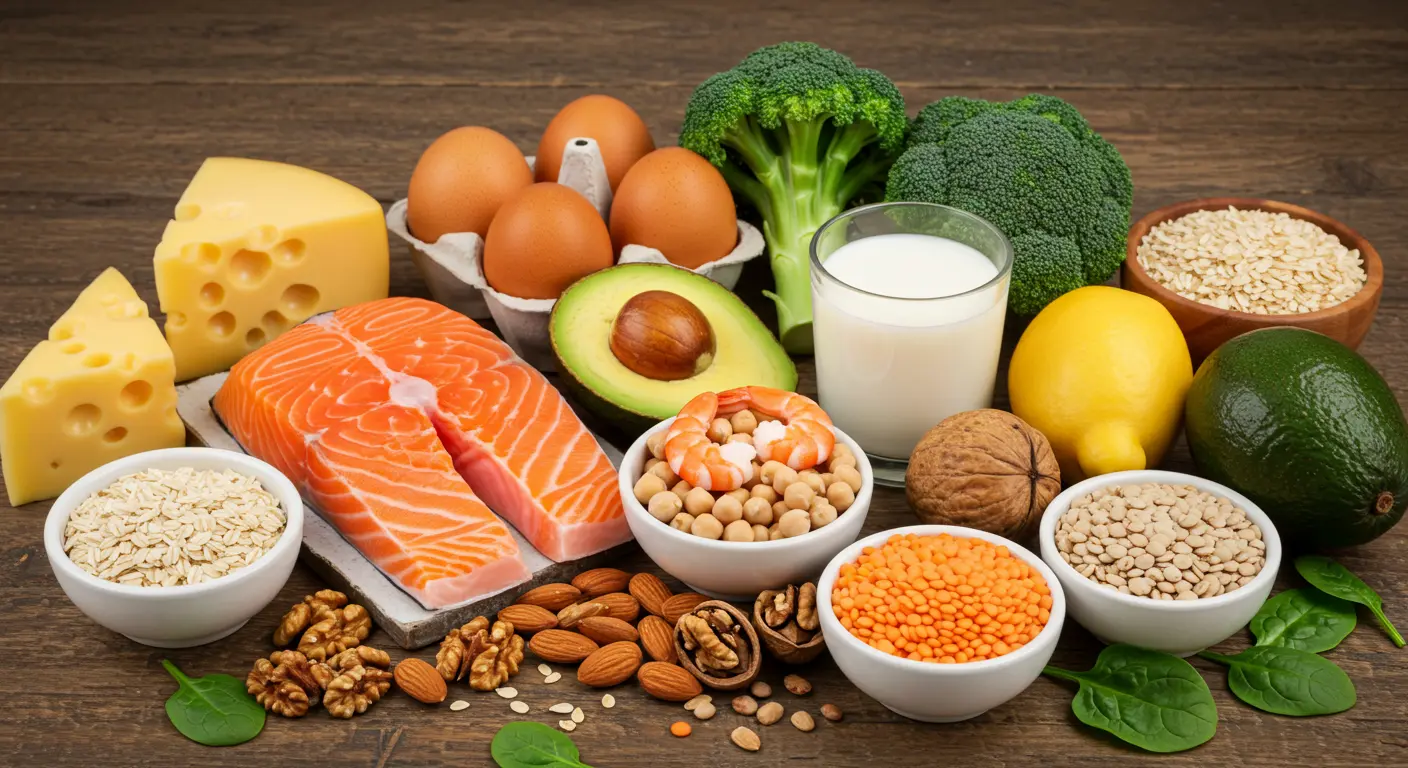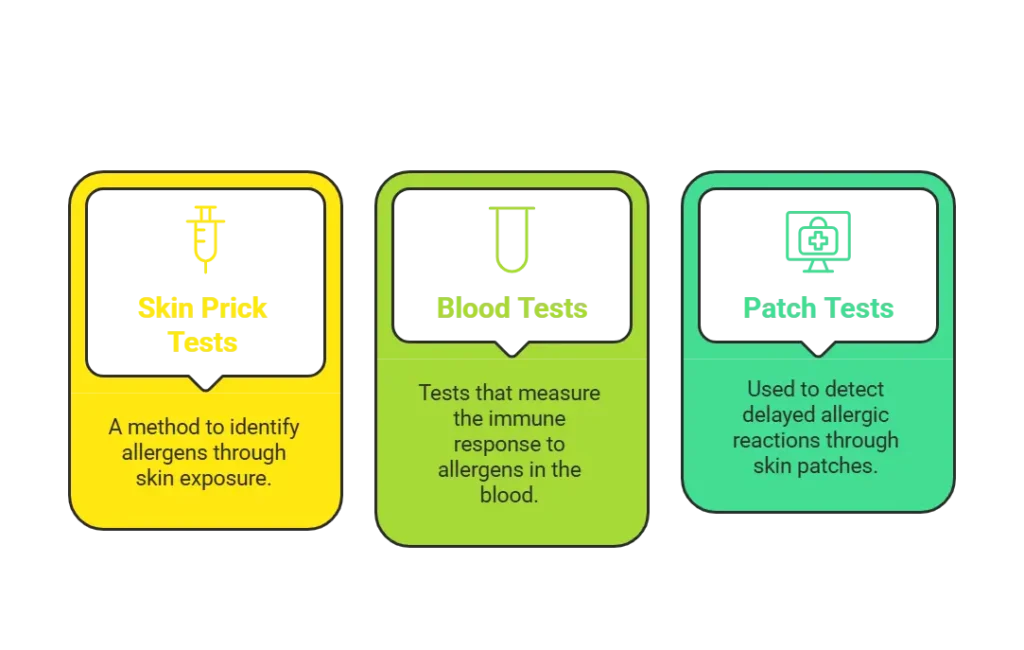
Foods to Avoid Before Allergy Testing
Imagine going in for an allergy test, hoping for clear answers, only to end up with inaccurate results. Eating the wrong foods beforehand can mess with your body’s reactions, making it harder to pinpoint what’s really causing your symptoms.
Avoiding certain foods before testing might seem like a small step, but it plays a big role in accuracy. Some foods can suppress allergic responses, while others might trigger mild reactions that interfere with results.
At Frontier Allergy & Asthma, we help patients prepare for testing so they get the most reliable answers. By guiding you on what to avoid, we ensure your results lead to a clearer path for long-term relief.
Types of Allergy Tests

Each allergy test works differently, and some are more sensitive to dietary influences than others. What you eat or drink before the test may affect results, making preparation an important step.
Skin prick tests introduce a small amount of allergens into the skin to observe any reaction. Foods high in histamines, such as aged cheese or certain fruits, may cause mild reactions that can interfere with results.
Blood tests measure levels of immunoglobulin E (IgE), an antibody linked to allergic responses. Since diet can influence the immune system, consuming foods that promote inflammation or suppress histamine production might skew findings.
Patch tests assess delayed responses to allergens by applying substances to the skin for an extended period. Some foods and drinks can subtly change skin sensitivity, which may impact how your body reacts to specific allergens.
How Diet Can Impact Allergy Test Results
How Food and Drink Choices Impact Allergy Testing Accuracy
What you consume in the days before an allergy test can significantly influence the results. Food choices can affect the immune system’s response, either by boosting histamine levels, suppressing reactions, or mimicking allergy symptoms, all of which might lead to inaccurate readings. To ensure a clear diagnosis, it’s worth understanding which items to avoid.
Foods That Might Confuse Test Results
Certain foods can trigger mild immune responses or mimic allergic reactions, complicating the process. For instance, histamine-rich options like tomatoes, spinach, and cured meats may nudge the immune system into a response that suggests an allergy where none exists.
Similarly, dairy products such as milk, cheese, and yogurt—or even shellfish and seafood—can spark inflammation or mild activation in some people, potentially skewing outcomes.
Nuts (think peanuts or tree nuts) and nut-based products might also release histamine or prompt non-allergic reactions, adding confusion.
Even spicy foods and artificial additives can produce symptoms that resemble allergies, throwing off the test’s precision.
Then there are foods that cross-react with allergens: fruits like apples, bananas, cherries, cucumbers, and melons, or vegetables such as potatoes and spinach, along with seeds like sunflower and sesame.
These can trick the body into a response that mirrors an allergy. Avoiding these common foods, allergy testing helps ensure the test reflects your true sensitivities.
Immune-Suppressing Foods to Avoid
On the flip side, some items can dampen immune activity, masking triggers the test is meant to catch. Dairy (milk, cheese, yogurt), eggs, wheat, and soya are known to suppress reactions in certain cases, potentially leading to missed allergens.
High doses of vitamin C—found in citrus fruits and berries—can reduce histamine production, further hiding responses.
A suppressed immune system might mean the test overlooks something critical, so steering clear of these is a smart move.
Beverages That Can Throw Things Off
Drinks play a role, too. Caffeinated options like coffee, tea, and some sodas can hike up histamine levels, making reactions seem more intense than they are.
Alcohol, meanwhile, suppresses the immune system, which could weaken allergic responses and lead to misleading findings. Highly processed beverages—like energy drinks or artificially flavored juices—often contain additives that might spark unrelated immune activity.
Even tea and coffee, despite their natural antihistamine-like properties from berries or citrus fruits, can interfere. Sticking to water or mild alternatives is a safer bet.
Keeping It Simple for Clear Results
If you’re unsure what to avoid, the simplest approach is to opt for mild, whole foods and skip anything processed, allergenic, or histamine-heavy.
Skip caffeine, alcohol, and medications like antihistamines or nasal sprays, which can further alter your body’s responses.
Clean eating in the lead-up to testing—leaving out dairy, nuts, shellfish, and the like—sets the stage for a more accurate picture of your sensitivities. By being mindful of these foods and drinks, you help ensure the test does its job effectively.
Medications and Supplements to Avoid Prior to Allergy Testing
Some medications and supplements can interfere with test results by dampening or triggering immune responses. Knowing which ones to stop before testing is important.
If unsure, check with a doctor before stopping any prescribed medications. Over-the-counter medications and natural supplements also play a role in test accuracy.
Over-the-counter and Prescription Medications
Medications influence how the body reacts during an allergy test. Some suppress symptoms, while others contribute to inflammation.
Antihistamines reduce allergic reactions, making it difficult to gauge true sensitivities.
Pain relievers, like ibuprofen, may affect inflammatory markers in some tests, altering results.
Corticosteroids suppress immune responses, potentially leading to false negatives in allergy evaluations.
Supplements That May Interfere with Results
Even natural supplements can affect test accuracy by altering immune function or histamine levels.
Herbal supplements with anti-inflammatory properties might mask allergic responses, leading to misleading test results.
Vitamin C plays a role in regulating histamine, potentially dampening allergic reactions.
Fish oil influences immune modulation, making some allergic responses less pronounced.
When to Resume Normal Eating Habits
After testing, it’s important to ease back into normal eating patterns while staying mindful of potential reactions.
Reintroducing foods should be done carefully. Give each one a day or two to monitor for any reactions.
If new symptoms appear, consulting with an allergy specialist ensures a proper action plan moving forward.
Book Your Appointment Today
Book your appointment today and take the first step toward relief with Frontier Allergy & Asthma. Our allergist in Austin is dedicated to providing precise allergy testing to help you understand and manage your symptoms effectively.
With personalized care and advanced diagnostics, we’re here to support your journey to better health.
Let’s work together to find the solutions you need. Your path to a healthier, allergy-free life starts here!

Written/Reviewed by: Dr. Neha Reshamwala
NPI number: 1780874578
Page last reviewed:


 All blog posts
All blog posts





